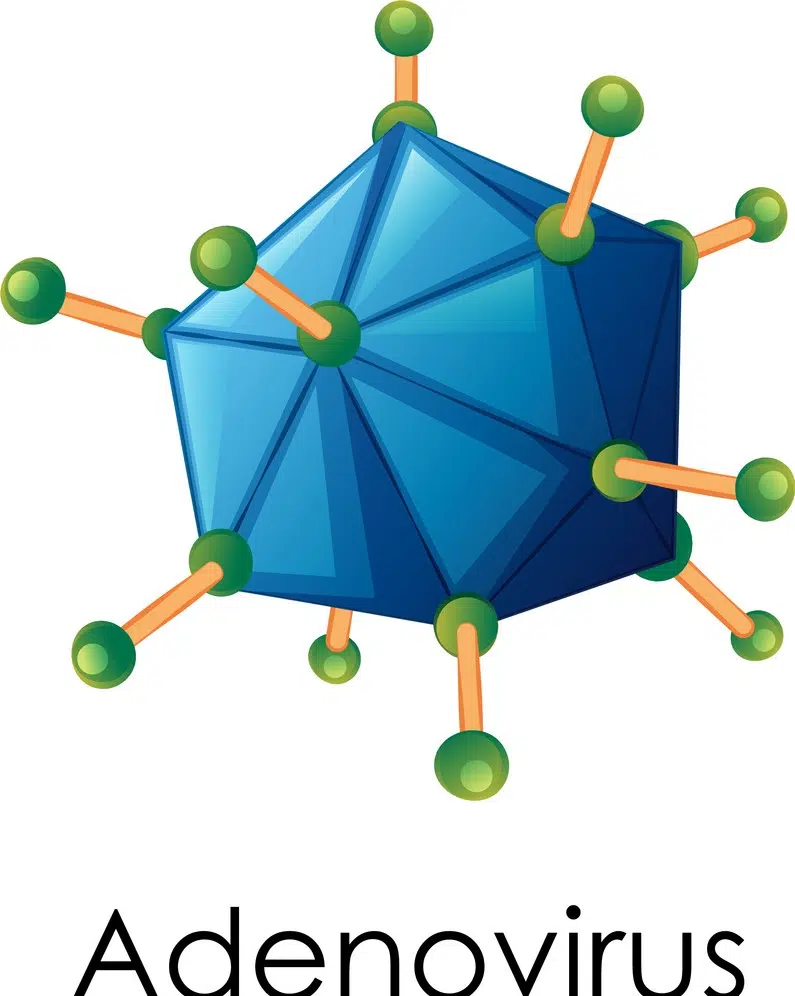Local public health would like to update residents on the cluster of adenovirus cases that have been seen in the central U.P. since mid-August of this year. As noted before, this virus is a very common cause of cold-like illness (occasionally with accompanying diarrhea) each year. Typically, healthcare providers do not even test for this virus because it is so common, usually self-limited and treatment is generally supportive i.e. fluids, rest, etc. There is no vaccine to prevent this viral infection.
However, some strains of adenovirus can also cause more substantial illness, such as bronchitis and pneumonia. These more significant infections occur most frequently in those with immune-compromising conditions and underlying respiratory disease. Long erm tobacco use is a risk factor as well.
At the outset of the adenovirus cluster, local lab testing identified cases in Delta, Menominee, and Marquette counties. However, the Centers for Disease Control and Prevention (CDC), have been doing additional confirmatory testing on hospitalized patients and to date, none of the confirmed cases reside outside of Delta and Menominee counties.
To date, there have been seven cases of adenovirus infections confirmed by the CDC. An additional four cases are awaiting confirmation (suspect cases). We are sorry to report that there have been two deaths amon the confirmed or suspected cases. In addition to hospitalized cases, out-patient testing has identified additional, milder cases.
After nearly three weeks without any new hospitalized cases, two additional suspect cases have been identified. Although the time between when someone is exposed and when they develop symptoms can be up to two weeks, there may still be some adenovirus circulating in Delta and Menominee counties.
Just like the flu, it is easy to pass the virus from person to person through coughing and sneezing. People can also come in contact with the virus by touching surfaces where the virus has landed–like doorknobs and other hard surfaces and then touching the moist parts of their eyes, nose, mouth. Just like in flu season, we remind people that big public spaces are easy places to spread infection.
Public health encourages people to use the same prevention strategies recommended throughout the year and especially during the cold and flu season: stay hom when you are ill, cough into your sleeve, wash your hands frequently and especially before eating and contact your healthcare provider if you are concerned about your symptoms. Individuals who have lowered ability to fight infections, have chronic respiratory problems like COPD and asthma and those who smoke, are at higher risk for more sever illness when they respiratory infections and should aim to reduce their exposure to sick individuals.
People ill with respiratory symptoms should contact their healthcare provider as they normally would, if they are concerned about the severity of their symptoms. There is no need for testing in mildly ill individuals who do not require hospitalization. Local public health and the Michigan Department of Health and Human Services (MDHHS) will continue to monitor the situation.






















